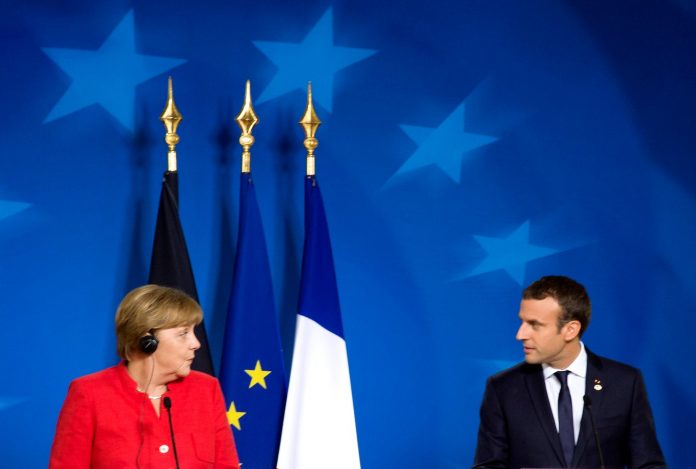To show that the European Union’s main axis remains strong, France and Germany have announced plans to extend a 1963 treaty of post-war reconciliation.
German Chancellor Angela Merkel and French President Emmanuel Macron will sign the extension to the Elysee Treaty (already approved by cabinets in both countries) in the German border city of Aachen, an historical symbol of European concord, on January 22.
“Both states will deepen their cooperation in foreign affairs, defence, external and internal security and development and at the same time work on strengthening the ability of Europe to act independently,” states the treaty text, seen by Reuters.
In Paris, Macron’s office said the Elysee Treaty extension would help both European powers tackle “the challenges they will be confronted with in the 21st century”.
“(We) envisage deepening our engagement in favour of security and prosperity of our peoples in the framework of a more sovereign, united and democratic Europe,” it said.
According to Reuters, the treaty extension stipulates that it will be a priority of German-French diplomacy for Germany to be accepted as a permanent member of the United Nations Security Council.
While making clear that Germany and France remain committed to the EU and Nato defence alliance, the agreement also signals that Berlin and Paris will combat efforts by some nationalist politicians in Europe to erode the 28-nation EU.
“Germany and France are making clear that to solve future questions, we need more, not less cooperation,” German Foreign Minister Heiko Maas said.

